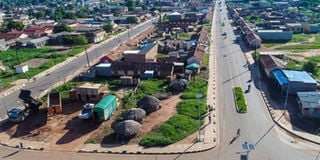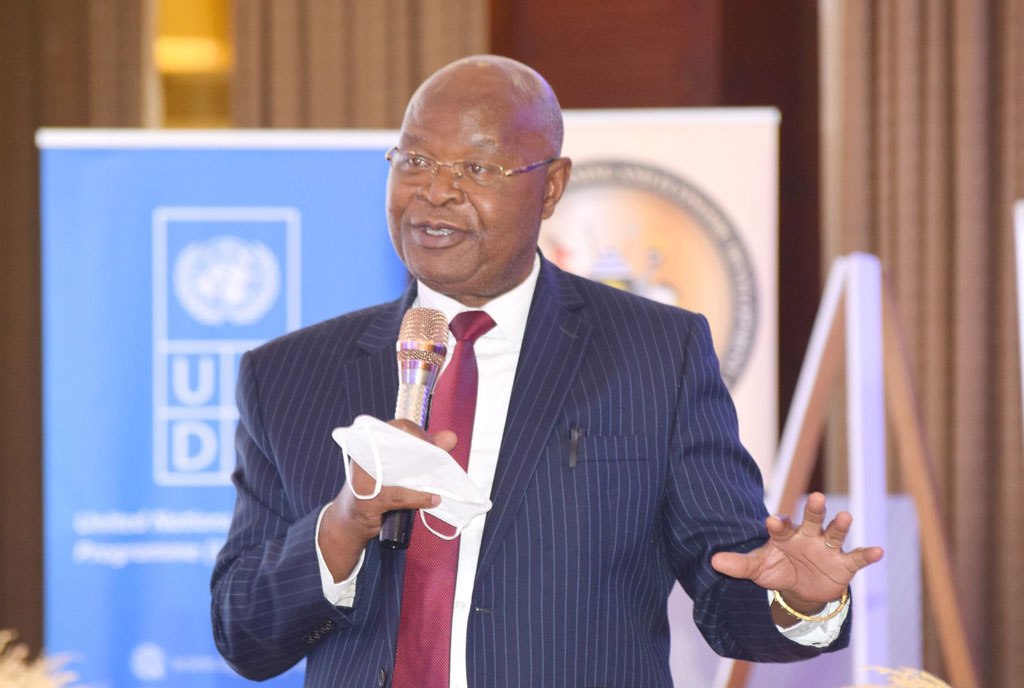Experts brainstorm on Gulu smart city status

Gulu town
What you need to know:
- Dr Alec Thornton, from University of New South Wales, said there is a lot of discussion being drawn currently on smart and sustainable city.
Gulu. Following the government’s elevation of Gulu Municipality to city status, to become operational by July 2020, experts have weighed in on how best they can transform and regenerate it into a model city.
A team of experts from Australia, Belgium, Makerere University, Gulu University and Gulu Municipality on Wednesday held a workshop to brainstorm on the possibilities of making this once war-ravaged town a model smart city.
Gulu is among the nine municipalities that were elevated to city status after Cabinet approval last month.
Prof Richard Vokes, from University of Western Australia, said there is need to re-think the use of technologies to further urban designs and improve lives of urban citizens, now that new cities are being created in the country.
He said this may include geo-digitisation technologies for re-organising permits, housing, businesses and use of technology for service delivery such as sewage, wastes and electricity.
Prof Vokes said there are also possibilities of people developing apps using the existing smart city fund and social media to solve problems affecting city dwellers.
He, however, noted that the discussion should be geared towards the expansion of the city in the future and bringing ordinary citizens on board to deliberate on issues affecting them since decision making and planning directly affects them.
The municipality town clerk, Mr Francis Barabanawe, said although smart city status is good for the soon-to-be city, the project is extremely advanced for the municipality.
He noted that the idea is brilliant and that there is need to start thinking early on how to achieve it since it requires digitisation of all systems in the city.
“We don’t have to first have a spot town so that we have a smart city, it’s important we need to start thinking early so that we know how we can have a city that is resilient and smart. We are still not even closer and there is even no city that is yet smart in Africa,” he said, adding: “We need to talk about the things that we can afford, like good housing industry, good transport, market, road networks, good schools, hospitals, clean and well planned towns with modern structures.”
Dr Alec Thornton, from University of New South Wales, said there is a lot of discussion being drawn currently on smart and sustainable city.
He added that Gulu is not exclusive in becoming a smart city.
The two days’ workshop also looked at possibilities of the city having automated transport system, automated solid waste management, better street lights and traffic lights centres, among others.
A smart city is expected to be an innovative city that uses information communication technology (ICTs) and other means to improve quality of life, efficiency of urban operations, services and competitiveness, while ensuring that it meets the needs of present and future generations with respect to economic, social and environmental aspects.
Changing face of Gulu
Gulu Municipality is currently undergoing infrastructural development with most of the roads being tarmacked and street lights installed.
Last week, President Museveni commissioned 13 roads measuring 9.03 kilometres constructed at a tune of Shs 43.499 billion funded by World Bank under the Uganda Support to Municipal Infrastructural Development [USMID].
Currently, World Kaihatsu Kogyo Co Ltd is constructing 5.3 kilometres roads covering 13 streets within the municipality funded by the Japanese International Cooperation Agency [JICA].
So far, 30 roads measuring 17.76 kilometers have been constructed within the Municipality under the USMID project since 2013 with well lit streets, carriageway, walk way and proper drainage.
In Uganda, Kampala Capital City Authority (KCCA) is pioneering the smart city agenda in the country.
The project is estimated to cost $15m (approximately Shs56.5b).



